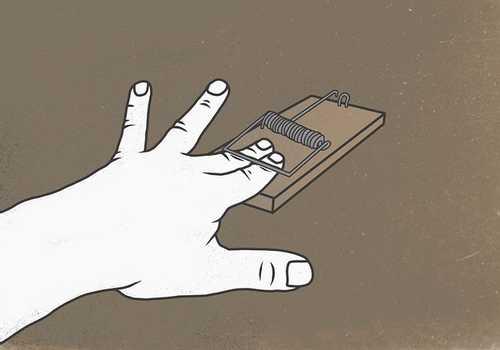Learn more about health with this collection
Different types of fasting
How fasting can improve your overall health
How to prepare for a fast
There is more to pain than just injury
Many people think that pain is the result of injury or damage to tissue. The reason for that is that pain warns us whenever we're experiencing tissue damage or are about to.
But there is more to pain. Our perception of pain is constructed from sensory information and context - our circumstance, needs, motivations, who we're with, and our expectations. This means that pain is more malleable and manageable than we think.
152
1.4K reads
Pain is not the same as injury
Pain is an indicator of injury, but not always. Some things like sunburn initially don't hurt. It only starts to hurt when our skin cells begin to die.
A more dramatic example is radiation exposure. It doesn't hurt while a person is exposed because they can only feel what the sensory nervous system can sense. But later on, the radiation poisoning may cause severe damage to the skin and soft tissue.
101
518 reads
Pain can be felt without tissue damage
Activity in the neurons that responds to injury is called nociception. It allows us to recognise and label different kinds of damaging stimuli, such as slamming your hand in the door or burning it on a stove.
Researchers wanted to observe what happens in the brain when we're exposed to damaging stimuli. They reported a pattern of neural activation across a network of brain regions that tracked nociceptive activity. Surprisingly, neuroscientists also observed this signature in the brain, and patients can report intense pain, without any tissue damage.
104
380 reads
Our perception of pain is complex
Nociception is often a part of the experience of pain, but it is not pain. It is not sufficient nor necessary for pain, for example, when we consider the pain of depression or grief.
So tissue damage can happen without pain, and pain can occur without tissue damage, and nociception that seems like pain isn't pain. This is because our experience of our bodies, perceptions, and explanations of the perceptions is part of a complex network of our nervous system.
101
311 reads
We respond to what we expect to happen
Our complex nervous systems continually process and integrate information about the body, regulating and balancing the resources. We respond and adapt to what is happening to us or is expected to happen to us.
We do this by running simulations of information we gathered and stored from past experiences. We can feel the signals of these simulations just as intensely as the signals we get from actual injury. This can be useful as the body can kickstart the circulation of our endogenous painkillers just before the injury happens.
108
245 reads
If we can imagine pain, we can imagine pain relief
Placebo can be a powerful treatment as it can cause pain relief or therapeutic benefit on the expectation of treatment rather than 'real' treatment.
- Studies show patients expecting morphine increase the circulation of their own endogenous opioids in advance of getting morphine.
- Patients who had undergone amputation can overcome phantom limb pain with mirror therapy. The brain is tricked into thinking their limb is restored and able to move, loosening up the discomfort.
112
274 reads
Limits to reconstructing reality in our favour
If we received a real injury, it wouldn't disappear because we use the power of positive thinking. Paracetamol does work for pain, and surgical and pharmacological interventions are life-saving and can reduce suffering.
But pain is complex. It is often caused more by what we think and fear, and that means we have more tools at our disposal to deal with it.
103
315 reads
CURATED BY
More like this
11 ideas
What is pain?
sciencefocus.com
12 ideas
How do painkillers actually kill pain?
bigthink.com
15 ideas
Read & Learn
20x Faster
without
deepstash
with
deepstash
with
deepstash
Access to 200,000+ ideas
—
Access to the mobile app
—
Unlimited idea saving & library
—
—
Unlimited history
—
—
Unlimited listening to ideas
—
—
Downloading & offline access
—
—
Personalized recommendations
—
—
Supercharge your mind with one idea per day
Enter your email and spend 1 minute every day to learn something new.
I agree to receive email updates

